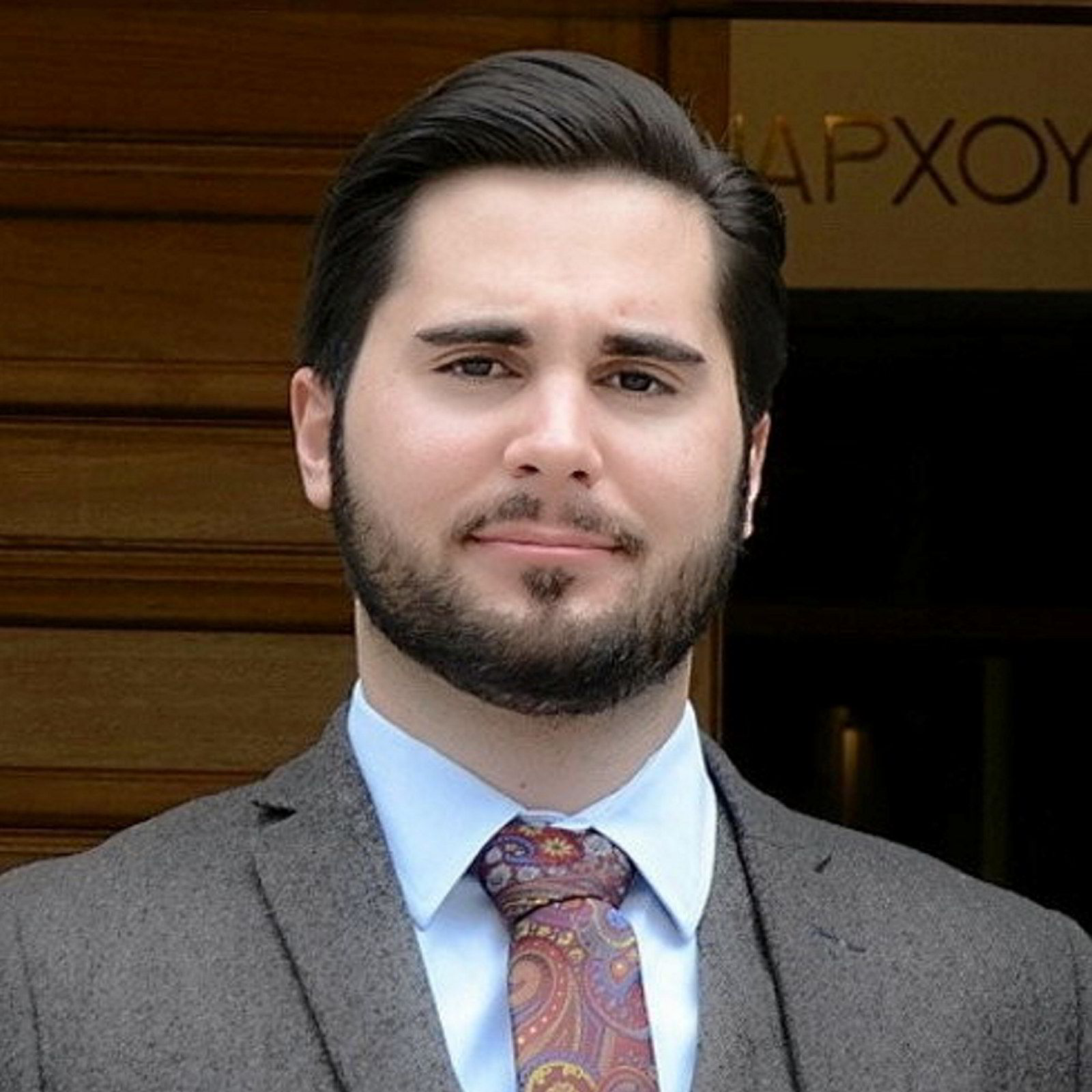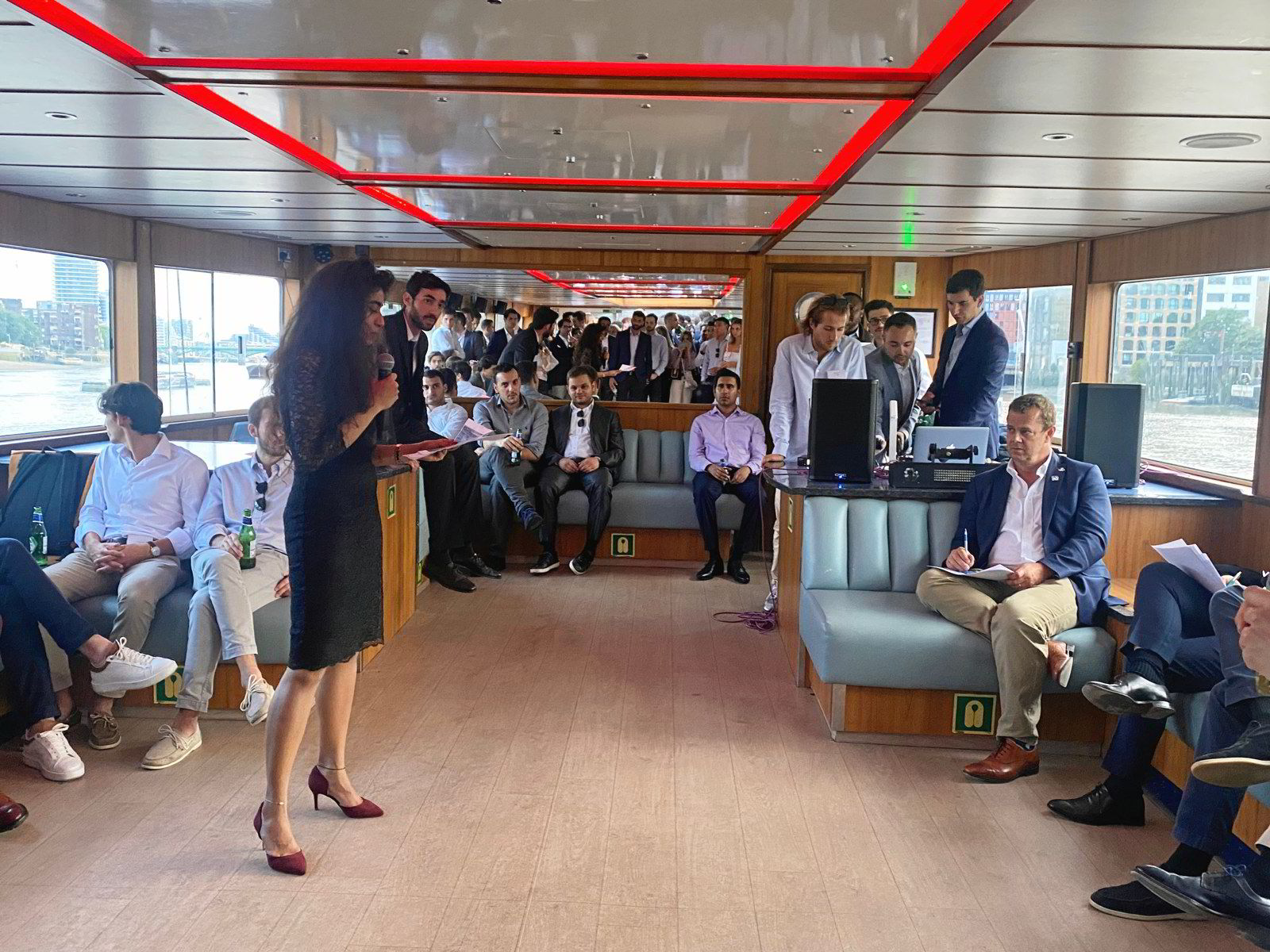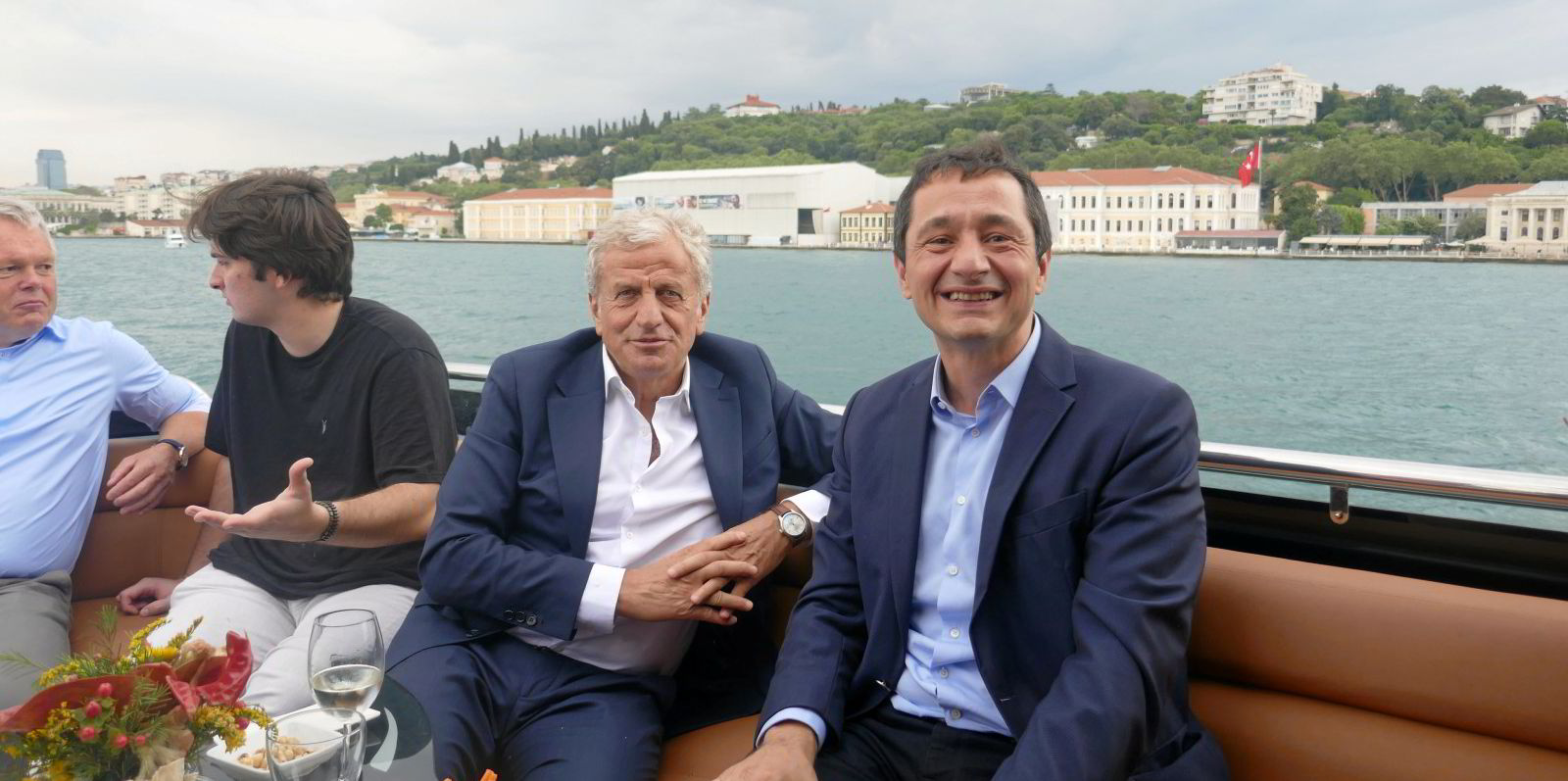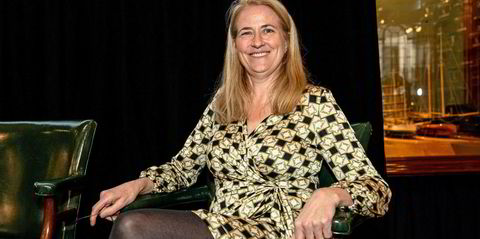The Costas Grammenos Centre for Shipping Trade and Finance at Bayes Business School (formerly known as Cass) has been the starting point for many high flyers in shipping.
But what ideas and what vision do its soon-to-be graduates — the shipping executives, traders and financiers of tomorrow — have about what is in store for the industry?
To showcase its talent, Bayes held an essay competition on board a boat on the River Thames with £500 prize money on offer for the best pitch.
The winner was Luis Aznar, who is finishing his masters in shipping, trade and finance at Bayes.
He told TradeWinds that his experience as a junior shipbroker at BRS Brokers and then at a shipowner in his native Spain ignited his interest in how the shore interacts with the sea.
His pitch focused on “decarbonising shipping one step at a time”, starting with electric vessels and the technical challenges and limitations of using batteries on board ships.
“I decided to pitch a hypothetical case study of acquiring five new fully electric ferries from shipbuilder Damen, to replace part of the ageing fossil fuel-powered ferries in the city of Hamburg,” he said.
“In this way, the city of Hamburg would continue to serve its existing ferry passengers at a similar monetary cost, but at a much lower environmental cost. This is due to the fact that Germany is already the leader in Europe in terms of renewable energy supply to its grid, and has pledged to have it fully powered by renewable energy by 2035.”
The panel of judges included Francois Cadiou, group CEO of BRS Brokers; Richard Buckley founder and CEO of software firm Ninety Percent of Everything; and Oliver Eiss, head of treasury at Zodiac Maritime, which sponsored the event.
Bear case
Claudius Rother’s vision of shipping’s future was based on a worst-case scenario — a world in which container shipping and world trade volumes have been impacted by the fallout of Covid, conflicts such as the war in Ukraine and ‘slowbalisation’, a slower pace of global integration that prioritises security.
Rother, originally from Hamburg, told TradeWinds that his pitch was about stimulating discussion. He thinks it is unlikely that a significant shipping crisis will result from shrinking demand for container transport.
“However, I am convinced that the container industry needs to keep a close eye on trends in world trade. Container companies need to be prepared for shifts from long-distance to more short-haul coastal container transportation and less demand for very large boxships,” he said.
“If the container industry succeeds in aligning tonnage supply wisely, I am convinced that the shipping industry is in for prosperous years that will provide the industry with enough financial dry powder to tackle the biggest challenge but also the opportunity for the industry: decarbonisation.”
Rother will work in maritime investment banking in New York from September.
Securitisation
Tanvi Narayan, who is completing her masters in energy, trade and finance, pitched to the judges how shipping can unlock untapped potential from alternative finance structures and securitisation.
“When long-term finance prospects for shipowners are effectively employed together with security, stability and financial benefits for investors — two of the directly involved key players in the shipping industry — the future of shipping in my vision is essentially designed by reshaping ship finance,” she told TradeWinds.
“The shipping market could benefit from traditional shipowners modifying the old-fashioned family-oriented business model to new and advanced ones with modern management strategies.
“Shipowners could also take advantage of such funding to shift their focus towards long-term employment contracts, green shipping and sustainability as alternative financiers would be keen to fund assets with a lower carbon footprint.”
LNG market
Nikolaos Ilarion Georgonikos’ pitch focused on the technical issues that will affect LNG’s viability as a transitional marine fuel as shipping decarbonises.
He told TradeWinds he hopes “to support the sustainable transition of the shipping industry” in his future career.
The problem for LNG marine fuel in the immediate term, he explained, is the rising price of the commodity.
Georgonikos expects rates for LNG carriers will become more driven by commodity price because charterers will prefer more efficient tonnage as the price of LNG goes up.
Although the current orderbook includes LNG carriers that are equipped with efficient engines, shipbuilding capacity constraints and long lead times mean that less-efficient, steam-turbine vessels will continue operating in what will be a highly profitable market, he said.
Incoming environmental regulations such as Energy Efficiency Existing Ship (EEXI) and Carbon Intensity Indicator will add to the complex picture. Georgonikos thinks major charterers will avoid fixing steam-turbine LNG carriers that do not have top EEXI ratings, which will mean these vessels will not be able to compete in long-haul international trades.
Georgonikos thinks this “incentivised” period market will dominate the future as many charterers try to avoid the “dynamic and unpredictable” spot market.









